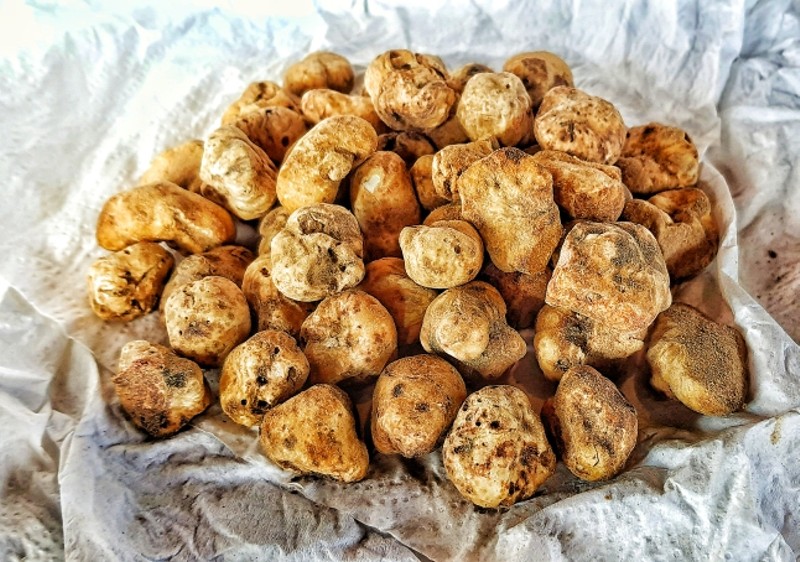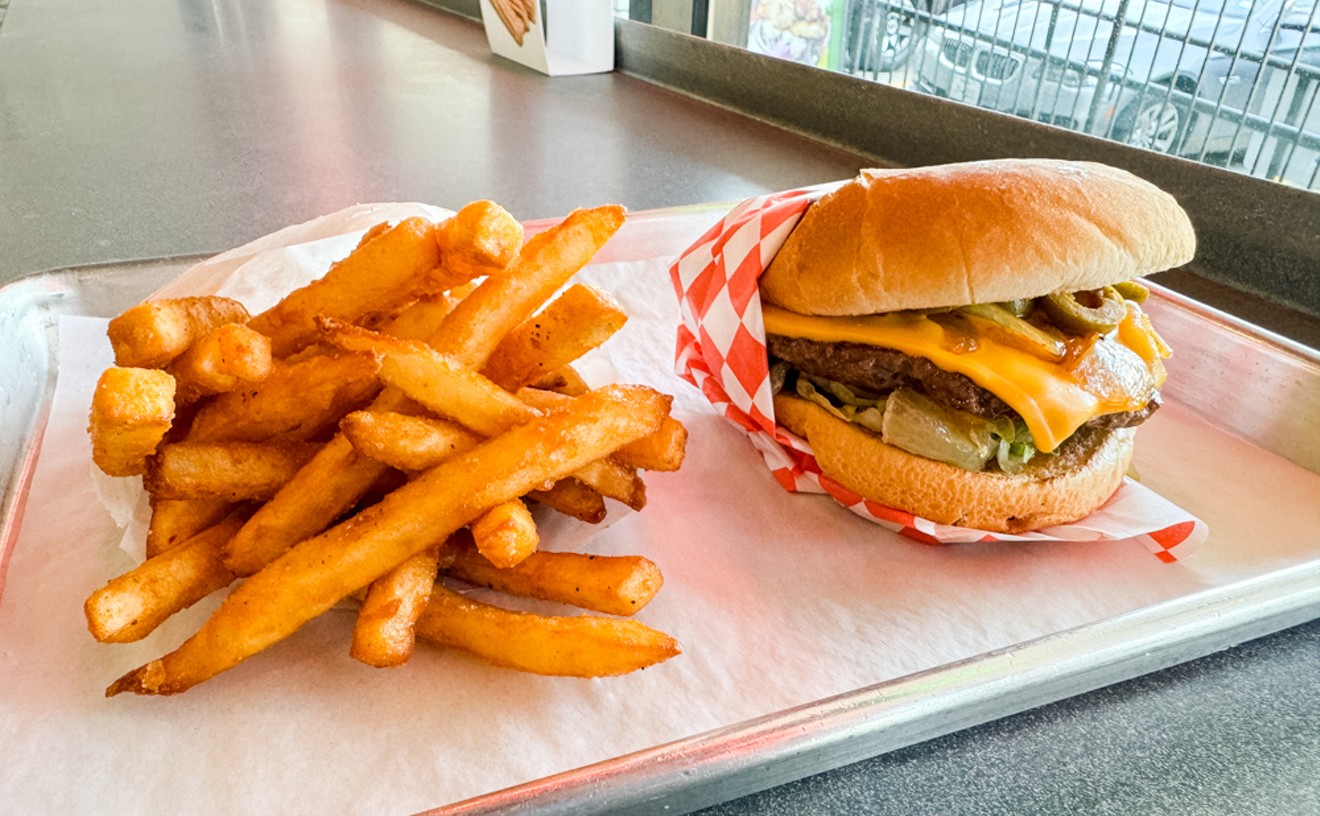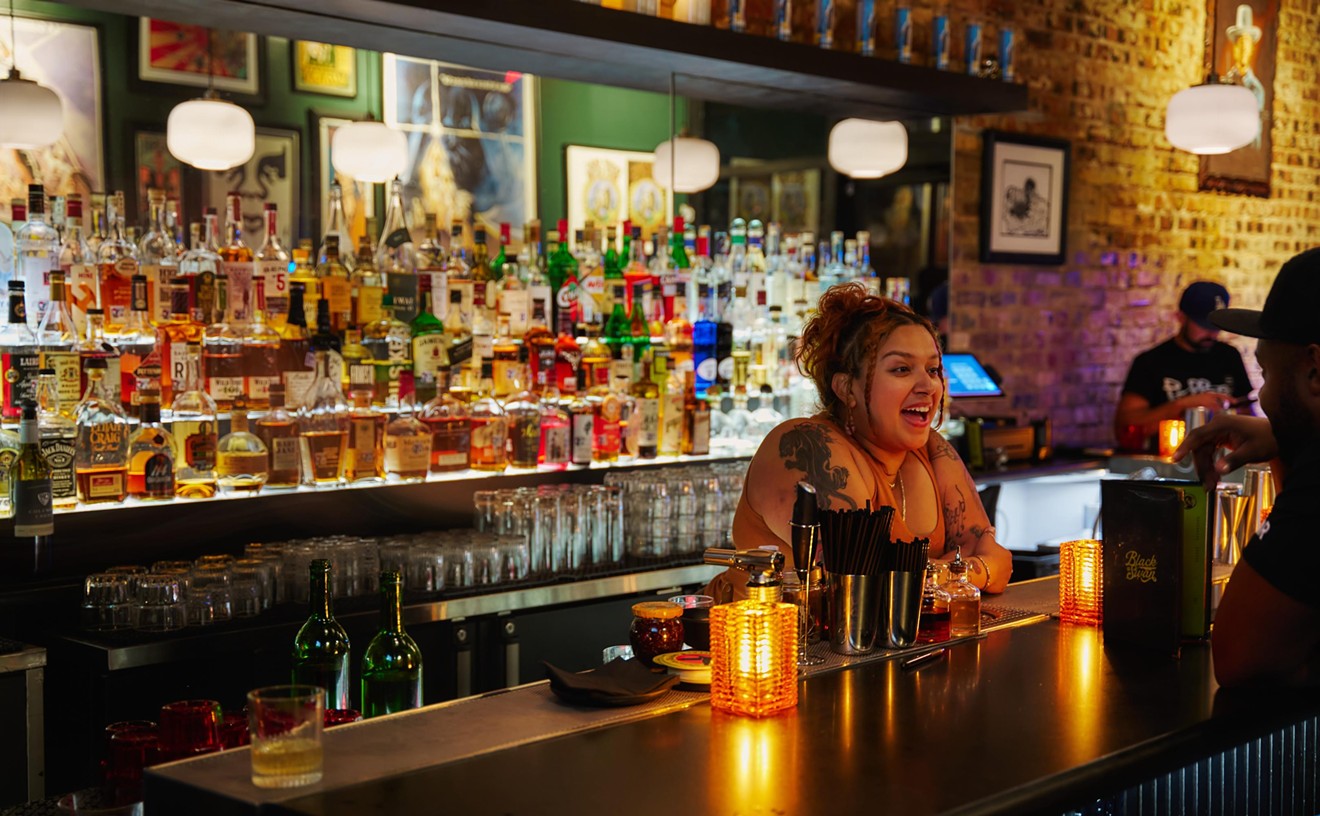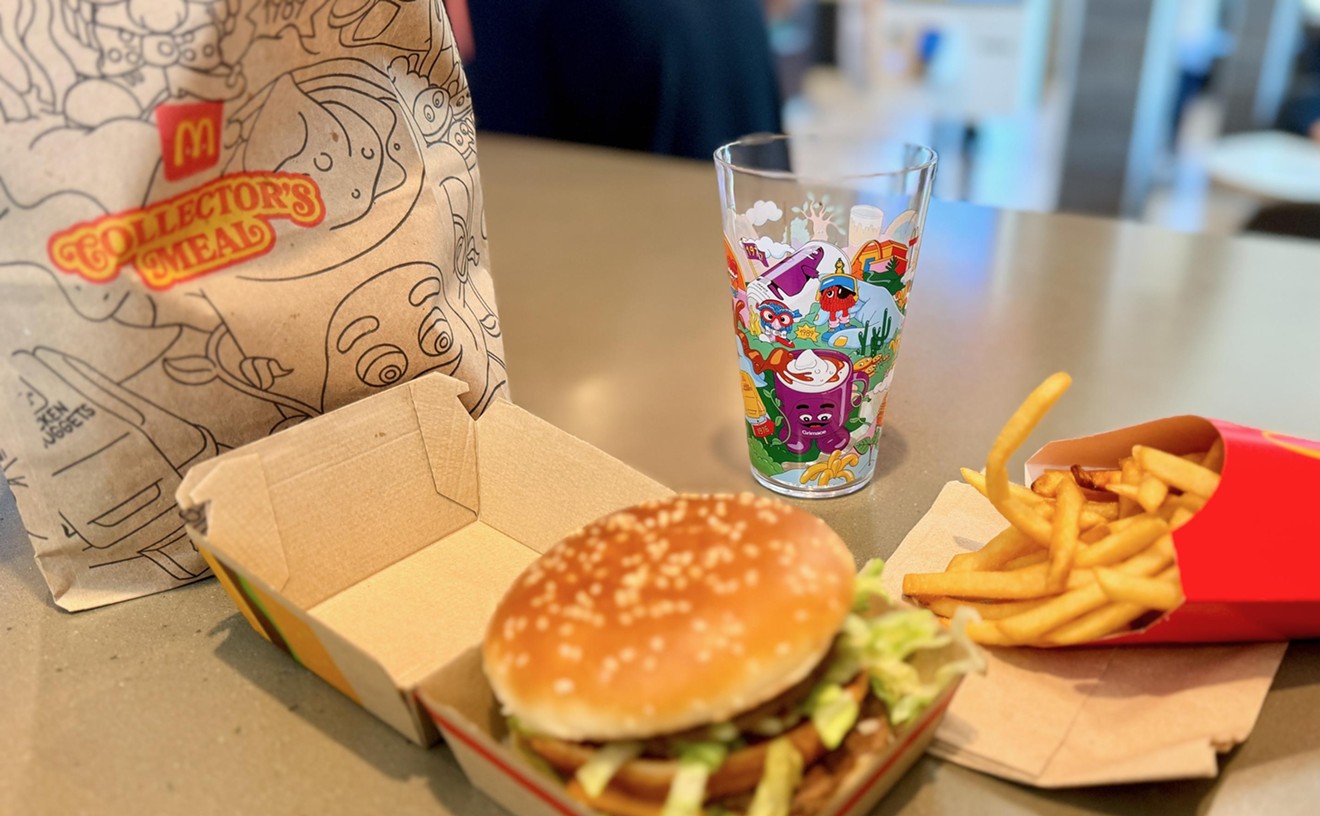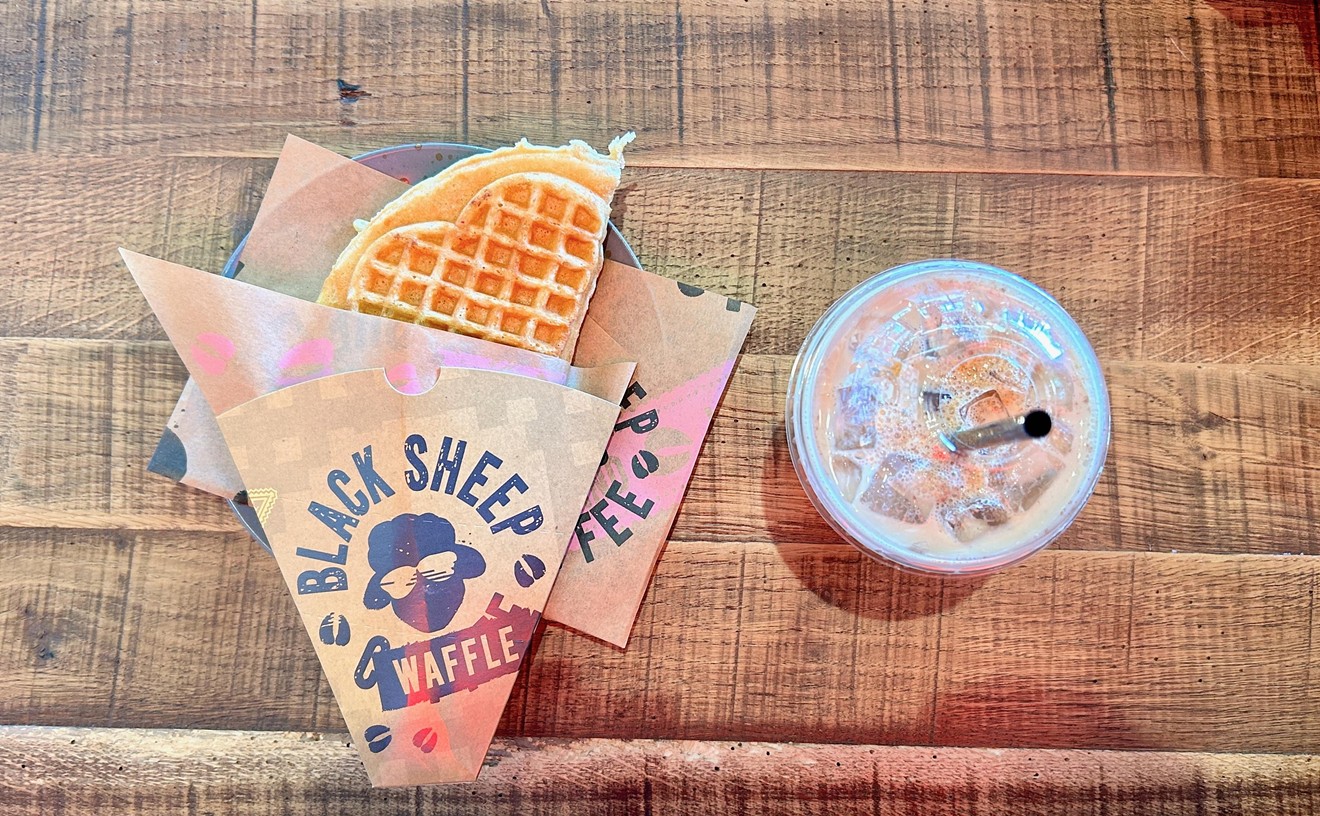A lot of what you hear about truffles, a strongly fragrant fungus that’s considered a culinary delicacy, seems contradictory. On one hand, they are known to be exclusive and expensive. In 2014, a white truffle weighing four pounds made headlines worldwide when it sold for over $1 million.
This fact alone makes the fungus seem unattainable, yet we see products labeled as truffle oil or truffle salt at the grocery store that typically cost from $20 to $50 a bottle, depending on the brand.
The more we hear about truffles, the more questions seem to arise. Luckily for us, these are the kinds of questions that Daniel Wissman, the owner of Dallas-based importer Belbosco Truffles, loves to talk about.
“My original interest in truffles really came because of my time in Italy,” Wissman tells the Observer. “I went to school over there, studied there, bought a house there and just fell in love with the food. When I would visit my family in Dallas, my friends would always ask me to bring Italian goodies home — olive oil, balsamic vinegar and truffles. One thing just led to another, and I decided to start this import business.”
Belbosco is the preeminent truffle importer in Dallas, with a concentration of clients across the southwest. Cafe Pacific and Au Troisieme are two notable Dallas restaurants that do business with Wissman. He splits his time between Dallas and Italy, but Belbosco sources truffles from around the world.
“Good truffles, the best truffles in the world, come from Italy and France, traditionally,” he says. “Now we’re developing harvests of truffles in Western Australia."
The main question on most people's minds is about those oils and salts. Are they the real deal? Yes and no, according to Wissman.
“You can't squeeze a truffle and oil will come out,” he says with a laugh. “Truffle oil is no different than any other infused oil. If you go to the grocery and you find lemon-infused or basil-infused oil, that's what truffle oil is.”
While much of the truffle products are artificial, you can buy oil infused with real truffles. Wissman himself makes it.
“It's a particle extraction, if you can believe it, of the truffle,” he says. “There is actually some molecular ingredient which they essentially inject into the oil to give it the aroma and taste.”
Real truffles fall into two categories. Black Perigord truffles, which cost up to $600 per pound, are known to have an earthy taste and sturdier form. The rarer white truffles can cost $1,500 per pound, taste nuttier and are too delicate to be exposed directly to heat.
The process of hunting for these truffles, which often need to fit exact specifications for clients, is painstaking and inconsistent. The fungi attach themselves to trees within a specific season, and after trained dogs find them the hunter digs them up and prepares them for transportation.
It’s a common misconception that pigs are used to hunt truffles. Wissman says this was the case long ago, but the pigs presented some logistical problems.
“Pigs would eat the truffles,” he says. “And they'd also eat the hunters’ hands.”
The dogs are trained not to do either of those things.
While truffles are predominantly hunted, the truffle farming industry is slowly taking off. This involves planting trees, releasing truffle spores and hoping for the best. As with hunting, it’s not an exact process. White truffles, for example, can’t be harvested in this manner. There's been some success cultivating black Perigord truffles in Australia, but it’s still hit or miss.
“They’re experimenting, but it's a very difficult thing,” Wissman says. “It's not like planting corn where it’ll just appear.”
The effect of climate change on the truffles’ natural growing conditions is making this kind of experimentation necessary for the industry’s survival.
“[Climate change] affects tree growth,” Wissman explains. “Truffles grow in symbiotic relationship with trees. They need the trees for nutrients. If the trees aren't healthy, the truffles can't grow.”
Once the truffles are out of the ground, the race is on to get them to the client’s kitchen before they expire.
“What I risk is that the inventory sits and that it just spoils,” Wissman says. “So I'm constantly on the phone and constantly soliciting [clients] for what they found and then shipping over. I have as many as three shipments a week coming over from Europe. Everything’s expedited and they come over packed in ice.
“It's not astrophysics, but it is difficult,” he continues. “You have to be very quick on your feet, and it takes really 150% attention to do it well."
After the truffles have been transported, they’re used by chefs across the country. Every chef deploys truffles differently, but Wissman says there are a few dishes they work best in.
“I think foods that have higher fat content like cheeses, cream-based sauces [pair well with truffles],” he says. “Nothing spicy or tangy, because that will conflict with the truffle.”
Sometimes clients will ask Wissman for a specific size or shape that it’s on him to source. Given that the hunt for any kind of truffle is inconsistent, clients will sometimes have to be told “no” or “not right now” to specific requests.
“I think most clients understand the delicate nature of truffles,” he says. “It's just not easy. And so most clients, especially the professionals, understand to order early enough so I'll have time to organize.”
Despite the unpredictable nature of the business, Wissman says that clients turn to Belbosco Truffles time and again because of their commitment to delivering high-quality truffles no matter the hurdles they face.
“I try to keep my inventory really fresh,” he says. “That's what I'm known for, really: the best truffles.”

Audio By Carbonatix
[
{
"name": "Air - MediumRectangle - Inline Content - Mobile Display Size",
"component": "18855504",
"insertPoint": "2",
"requiredCountToDisplay": "2",
"watchElement": ".fdn-content-body",
"astAdList": [
{
"adType": "rectangle",
"displayTargets": "mobile"
}
]
},{
"name": "Editor Picks",
"component": "17105533",
"insertPoint": "4",
"requiredCountToDisplay": "1",
"watchElement": ".fdn-content-body",
"astAdList": [
{
"adType": "rectangle",
"displayTargets": "desktop|tablet"
},{
"adType": "rectangle",
"displayTargets": "desktop|tablet|mobile"
}
]
},{
"name": "Inline Links",
"component": "18349797",
"insertPoint": "8th",
"startingPoint": 8,
"requiredCountToDisplay": "7",
"maxInsertions": 25
},{
"name": "Air - MediumRectangle - Combo - Inline Content",
"component": "17105532",
"insertPoint": "8th",
"startingPoint": 8,
"requiredCountToDisplay": "7",
"maxInsertions": 25,
"watchElement": ".fdn-content-body",
"astAdList": [
{
"adType": "rectangle",
"displayTargets": "desktop|tablet"
},{
"adType": "rectangle",
"displayTargets": "desktop|tablet|mobile"
}
]
},{
"name": "Inline Links",
"component": "18349797",
"insertPoint": "8th",
"startingPoint": 12,
"requiredCountToDisplay": "11",
"maxInsertions": 25
},{
"name": "Air - Leaderboard Tower - Combo - Inline Content",
"component": "17105535",
"insertPoint": "8th",
"startingPoint": 12,
"requiredCountToDisplay": "11",
"maxInsertions": 25,
"watchElement": ".fdn-content-body",
"astAdList": [
{
"adType": "leaderboardInlineContent",
"displayTargets": "desktop|tablet"
},{
"adType": "tower",
"displayTargets": "mobile"
}
]
}
]

